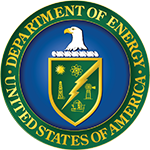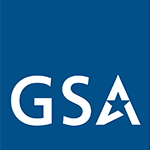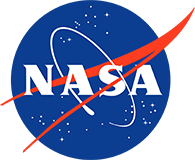None
All energy savings performance contract (ESPC) projects for task orders under the U.S. Department
of Energy (DOE) IDIQ ESPC are to be done with a qualified project facilitator (PF) or PF teams that are approved by the Federal Energy Management Program (FEMP). Federal agencies have increased the use of their own in-house PFs. Therefore, FEMP has identified the need to train potential new PFs to ensure consistency in approach and facilitate workforce development in this area.
Topics covered during this recorded webinar include basic overviews of ESPC project management, the DOE IDIQ ESPC, and DOE's Project Development Resource Guide, which FEMP-approved PFs are expected to follow. In addition, attendees will learn about:
- ESPC best practices;
- The five phases to successful implementation;
- The risk, responsibility, and performance matrix;
- The technical proposal evaluation;
- Calculating baselines and savings;
- Utility rate escalation;
- How to evaluate the measurement and verification (M&V) plan;
- And much more.
Instructors
Brandi Eng-Rohrbach, Department of Energy Federal Energy Management Program (FEMP) Read Bio
Brandi Eng-Rohrbach is the FEMP program lead for ESPC project facilitation services and life of contract services. She has over five years of project management and consulting experience in the energy field. She previously analyzed facility energy issues and determined appropriate investment strategies for energy projects for the Navy. Prior to that she provided technical guidance, performed project review, and developed program implementation processes for a utility demand side management program for industrial and commercial clients. She holds a B.A. in Environmental Science from Oberlin College, a M.B.A. from California Polytechnic State University, and an M.S. in Civil Engineering from Carnegie Mellon University.
Doug Culbreth, Oak Ridge National Laboratory Read Bio
Doug Culbreth is a Federal Project Executive (FPE) supporting the ESPC Program for DOE FEMP. Mr. Culbreth coordinates ESPCs, including other third-party financing activities in the southeast and Europe such as Utility Energy Saving Contracts (UESC), Power Purchase Agreements, and ESPC ENABLE. Mr. Culbreth has over 35 years of experience in the development and evaluation of energy efficiency and renewable energy projects in the local, state and federal government sectors. He has participated in the award of projects with a total investment value over $800 million.
Deborah Kephart, Allegheny Science & Technology Read Bio
Deborah Kephart is a retired federal contracting officer with over 25 years of acquisition experience, including over 13 years with Energy Savings Performance Contracts (ESPC). She previously worked at U.S. Department of Energy, Golden Colorado as Contracting Officer with responsibility for DOE's ESPC master contracts. Prior to that she was a contracting officer with Department of Navy responsible for award and administration of numerous energy contracts. Ms. Kephart also served as Auditor, Supervisory Auditor, and Financial Liaison Advisor with the Defense Contract Audit Agency proving audit, pricing and financial advisory services. She holds a B.S. in Accounting from CSUN and is a California CPA.
Terry Sharp, Oak Ridge National Laboratory Read Bio
Terry Sharp is a building scientist and project lead in ORNL's Building Technologies Research and Integration Center. He has extensive experience in developing advanced building energy performance rating tools, improving strategic energy management for buildings, ESPC project building and execution including risk assessment, risk minimization, and measurement and verification, analyzing energy use data from building portfolios, and in building energy performance assessments. Terry is a recognized expert in building energy performance benchmarking and metrics, and made contributions that enabled EPA's highly–recognized Energy Star Buildings Labeling Program, New York State's incentive program for commercial building upgrades, and ASHRAE Standard 100 for existing building energy efficiency. Terry is a professional engineer with M.S. and B.S. degrees in Mechanical Engineering
Learning Objectives
After attending this workshop attendees will:
- Understand the importance of a technical proposal evaluation;
- Have a thorough understanding of how to develop, manage, and implement an ESPC project;
- Be able to evaluate M&V processes and review M&V reports and;
- Know how to utilize: eProject Bulder, ESCO Selector Tool, ESPC Benchmark Tools, ReOpt, and the ESPC ESA Toolkit.









